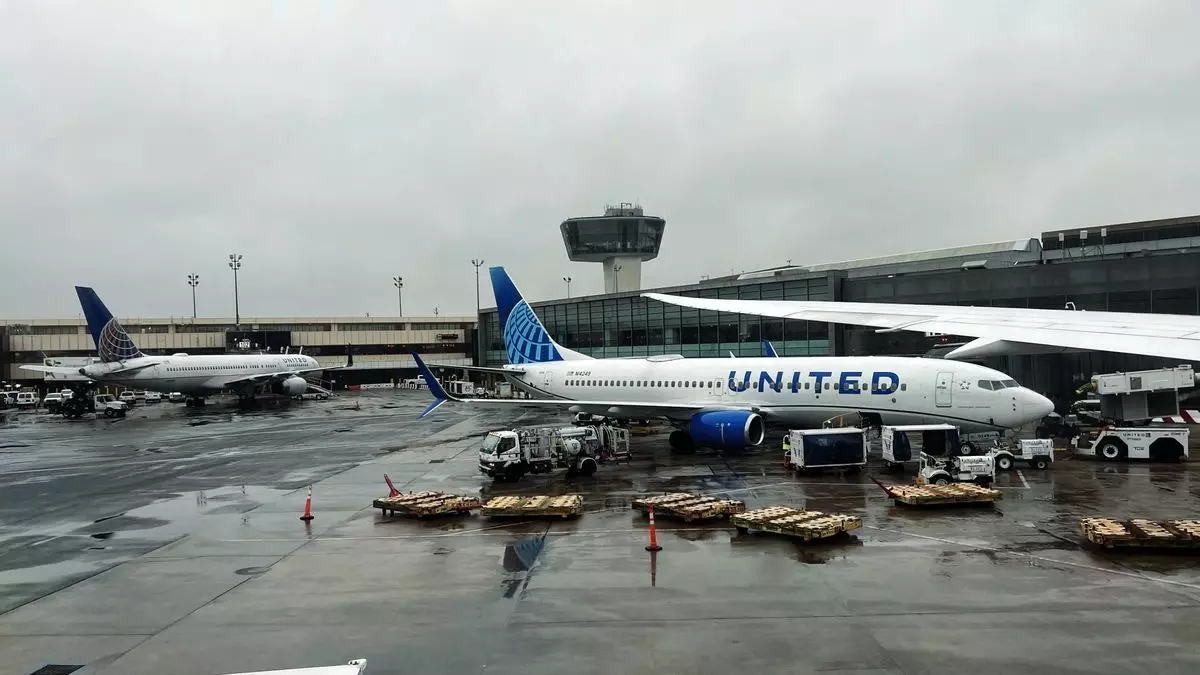Navigating through air travel has always possessed its challenges, but Newark Liberty International Airport (EWR) has recently showcased an unfortunate series of delays and cancellations, igniting serious concerns among lawmakers and airline executives. On a turbulent Monday morning, New Jersey’s prominent political figures were seen pressing for investigations to address what Senate Minority Leader Chuck Schumer described as “chaos.” As the air traffic controller shortage escalates, combined with adverse weather conditions, the intensity of the situation calls for immediate attention.
The recent disturbances highlight a broader issue affecting not only Newark but the air traffic infrastructure across the United States. Schumer has formally called upon the inspector general to investigate the factors creating this disruption, which could potentially serve as a precursor to even worse outcomes if not addressed quickly. New Jersey Governor Phil Murphy has echoed this sentiment, urging Transportation Secretary Sean Duffy to allocate necessary investments toward enhancing the operational stability of Newark’s airport—an essential hub for both business and leisure air travel.
Impact of Staffing Shortages on Airline Schedules
As tensions culminated over the weekend, United Airlines announced a significant decrease in its daily flight offerings from Newark, cutting down 35 daily flights from its operational schedule. This decision emphasized the corporation’s recognition of the troubling climates affecting air travel over recent weeks. Further complicating matters, the Federal Aviation Administration (FAA) reported that flight delays skyrocketed, reaching an average of four hours due to a combination of controller shortages and inclement weather conditions.
A pointed declaration from the FAA indicated that many controllers in the Philadelphia facility, responsible for managing flights entering and leaving Newark, had taken time off to recover from stress associated with recent complications. This reveals a distressing side of the air traffic control profession, one that external observers might overlook. Moreover, the FAA noted the challenges of quickly replenishing the workforce in such a highly specialized field, which, although valid, raises questions about long-term planning and recruitment strategies.
Technological Failures Compounding the Crisis
United Airlines’ CEO Scott Kirby highlighted that technological failures at Newark had significantly contributed to the ongoing chaos. The inadequacies of air traffic management technologies not only led to delays but exposed the vulnerabilities of the airport’s operational framework. This situation underscores vital considerations about investing in technology and systems capable of adapting to burgeoning traffic demands.
With more than one-fifth of the air traffic controllers reportedly walking off the job, the sense of urgency to address longstanding infrastructural issues has never been more pronounced. The consequences of these disruptions ripple through the airline industry, affecting not just operational integrity but also consumer confidence. Families and business travelers alike are making hard choices about future travel plans amid uncertainties surrounding air traffic efficiency.
The Broader Implications for the Airline Industry
Beyond Newark, the entire landscape of U.S. air travel is teetering on the brink of unpredictability. Economic tensions fueled by national political decisions have led consumers to reconsider their travel commitments, whether for business or leisure. United Airlines has even resorted to issuing dual financial forecasts, portraying its uncertain future under scenarios of either recession or economic stability.
While the relocations of air traffic controllers and promotional programs for new recruits, introduced by the Trump administration, may provide some relief, the overarching system requires a reevaluation. The National Air Traffic Controllers Association has long advocated for upgrading the technology and infrastructure critical for effective air traffic management. Until these foundational aspects are addressed, travelers will continue to be held hostage by a system burdened by outdated methodologies and insufficient workforce utilization.
To restore public confidence in the air travel system, continued scrutiny on operational capabilities is essential. The recent chaos at Newark is more than an airport issue; it represents a pressing national concern that necessitates urgent reforms capable of withstanding future uncertainties. At stake is not only the efficiency of flight services but also the well-being of travelers across the country.


Leave a Reply